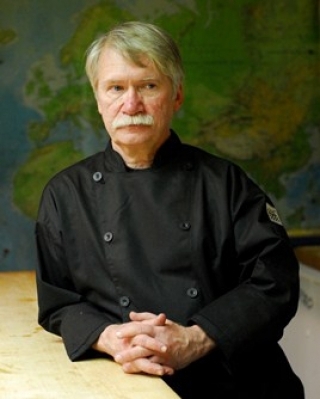
Ensuring Your Program is Not Directionally Challenged
29 March 2021Pushing your program in the right direction requires uniqueness, excellence and educational pride.
By Paul Sorgule, MS, AAC
The million-dollar question every director, dean and faculty member should be asking is: “Is my program headed in the right or the wrong direction?” How would you know? Here is a checklist worthy of a few minutes of your time – a checklist that may serve as a wake-up call and a call to arms:
- Is your enrollment declining?
- Is your student attrition rate higher than it was a few years ago?
- Have you noticed students seem less committed to a kitchen career than in the past?
- Do your faculty members show signs of burnout?
- Has the local press stopped covering what is occurring in your program?
- Are there fewer companies recruiting your graduates than just a few years ago?
- When was the last time your curriculum was updated or courses revised?
- Have you noticed “uniform malaise” in your kitchens (uniforms not as clean, not as crisp, not representative of excellence)?
- Is there an increase in the amount of friction between your faculty members?
- Has active participation in faculty meetings decreased?
- Are your kitchens not quite as pristine as they once were?
- Are your students truly kitchen ready at graduation and have your employers affirmed this to be true?
If you cringe at these questions – knowing the answers are not what they should be - then maybe, just maybe your program is heading in the wrong direction.
Now we can point a blaming-finger in many directions: the economy is weak, the pandemic has disrupted everything, tuition debt has left students wondering if it’s worth it, too much competition, school bureaucracy, etc. More than likely the culprit is looking back at you in a mirror. Denial is a terrible burden and so are excuses. If you will not admit there is a need for change, then who will? There will always be challenges, competitors and operational processes making change difficult. There will also always be opportunities to move in a different direction.
Everything listed above is an effect and not the cause resulting from the positioning your program holds. Dealing with effects is exhausting, time-consuming, and of little consequence since each one that is dealt with opens the door for a new, sometimes more intrusive challenge. Those operators who focus on identifying the cause and building a strategy around addressing the cause will suddenly view challenges as golden opportunities.
So, now that you have assessed your current state let’s start fresh with a few more questions that will kick-start your creative self:
- How is your program unique? What sets it apart from others?
- How would you express your value statement?
- What are the real strengths of your faculty members?
- How is your program viewed in the community?
- How do you want to be viewed?
- How is your program viewed by other culinary schools?
- What extraordinary things are your alumni doing?
- Are you active in the admissions process?
- How exciting is your presence on social media and the internet?
- How do you promote your program brand to current students and alumni?
- Are you engaging your alumni to recruit exceptional students?
- What professional organizations do your faculty members belong to?
Answers to questions such as these will help the process of defining your program and establishing a brand image during a time when creating uniqueness has never been more important. The opportunities are limitless to stand out from the crowd and create compelling reasons for students to choose you and employers to choose those individuals who complete the “built-in rigors and assessments” of your program.
Stand tall and wave your uniqueness flag. Strive for excellence and distance yourself from mediocrity and complacency. Express pride in your educational endeavors and push your program in the right direction and turn your challenges into opportunities.
PLAN BETTER – TRAIN HARDER
Paul Sorgule, MS, AAC, president of Harvest America Ventures, a mobile restaurant incubator based in Saranac Lake, N.Y., is the former vice president of New England Culinary Institute and a former dean at Paul Smith’s College. Contact him at This email address is being protected from spambots. You need JavaScript enabled to view it..
